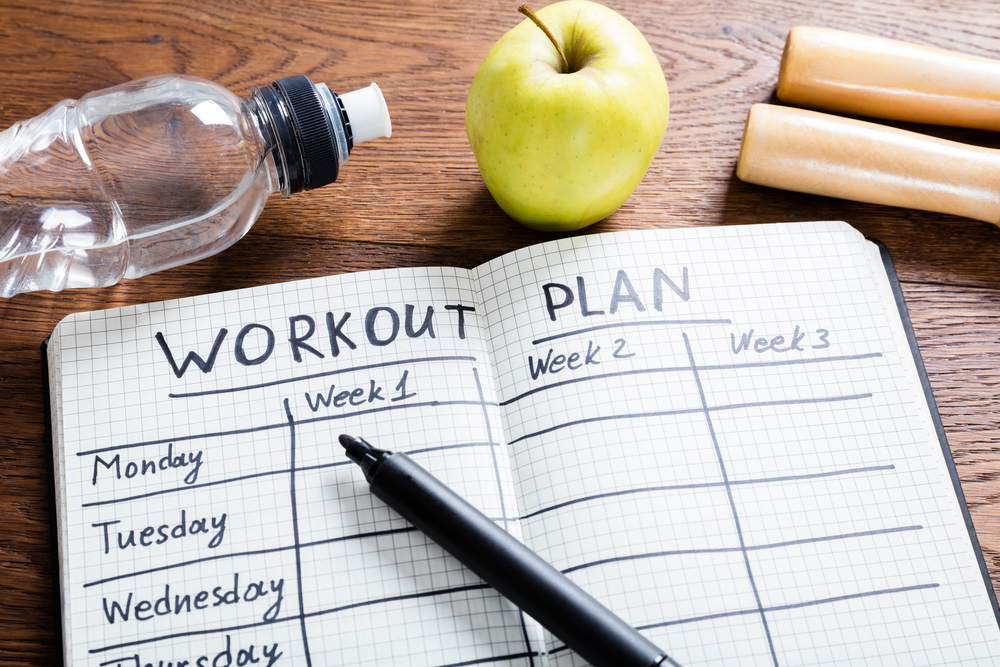Starting a fitness journey is a powerful undertaking that needs commitment and careful preparation. Choosing the appropriate exercise plan is one of the most important components of any successful fitness program. Tailoring your exercise regimen is essential to getting the best results, regardless of your fitness objectives—gaining or losing weight, increasing muscle mass, or improving overall health. This in-depth guide will walk you through the process of choosing the ideal training schedule based on your personal fitness objectives, providing advice and techniques to help you succeed.
Knowing Your Fitness Goals: It’s important to set clear goals and define your fitness objectives before getting into the details of a workout plan. Do you want to put on weight and increase your muscle mass? Or maybe you want to get rid of extra body fat and get a leaner body. Perhaps you’re more concerned with strengthening your heart and developing endurance. Whatever your goals may be, having a clear understanding of them will help you stay motivated and focused as you progress toward your fitness goals.

Evaluating Your Current Fitness Level: The next stage after defining your fitness goals is to precisely evaluate your current level of fitness. This entails assessing your capabilities, limitations, and potential growth areas in relation to different fitness facets, such as strength, endurance, flexibility, and balance. Take into account variables like your starting strength, cardiovascular health, body type, and any current physical restrictions or injuries. This self-evaluation will give you important information about where you stand and how to choose the right exercises and level of intensity for your workouts.
Creating Your Workout Plan: Now that you know your goals and your current level of fitness, it’s time to create a workout plan that will help you achieve those goals. A well-rounded fitness program usually consists of a mix of functional movements, strength training, flexibility exercises, and cardiovascular exercise. Your workout plan’s emphasis and structure, however, will change based on your objectives.
For instance, your training regimen might emphasize resistance training with moderate to heavy weights and higher volume sets and repetitions if your main objective is muscle hypertrophy (muscle growth). On the other hand, if weight loss is your main goal, your plan might include cardiovascular exercise, high-intensity interval training (HIIT), and calorie-controlled nutrition to generate a caloric deficit and encourage fat burning.
Including Variety and Progression: To avoid plateaus and optimize results over time, it’s critical to include variety and progression in your exercise regimen, regardless of your fitness goals. As your strength and fitness increase, this could entail switching up your workout routine, modifying the exercises you perform, stepping up the resistance gradually, or all of the above. Furthermore, you can make sure that you keep pushing yourself and making steady progress toward your goals by reviewing your goals on a regular basis and making necessary adjustments to your training schedule.
Listening to Your Body: While dedication and consistency are essential for any fitness program to succeed, it’s also critical to pay attention to your body’s needs and give rest and recuperation the priority they deserve when necessary. Excessive training can impede your progress and undermine your objectives by causing exhaustion, burnout, and an elevated risk of injury. Workout regimens should include rest days, emphasise getting enough sleep, and be alert for symptoms of overuse injuries or fatigue. Finding a balance between hard training and sufficient rest will position you for long-term success and sustainability in your fitness journey.
Seeking Professional Advice: Don’t be afraid to consult licensed personal trainers or other fitness experts for advice if you’re confused about how to create a workout schedule or handle the complexities of exercise programming. A skilled trainer can evaluate your specific needs, design a program of exercise specific to your objectives, and offer professional direction, inspiration, and accountability all along the way. Investing in professional assistance can hasten your progress and improve your overall fitness experience, regardless of your level of experience—whether you’re a novice trying to get off to a good start or an accomplished exerciser trying to overcome a plateau.

Conclusion
In summary, choosing the ideal exercise regimen is essential to reaching your fitness goals and realizing your full potential. You can put yourself in a successful position and take big steps toward living a healthier, happier, and more active lifestyle by defining your objectives, evaluating your level of fitness, and creating a personalized training plan. Never forget to listen to your body, vary, progress, and rest your routine. When in doubt, seek professional advice. You can embrace the transformational power of exercise and achieve your fitness goals with commitment, tenacity, and a well-designed workout program.

